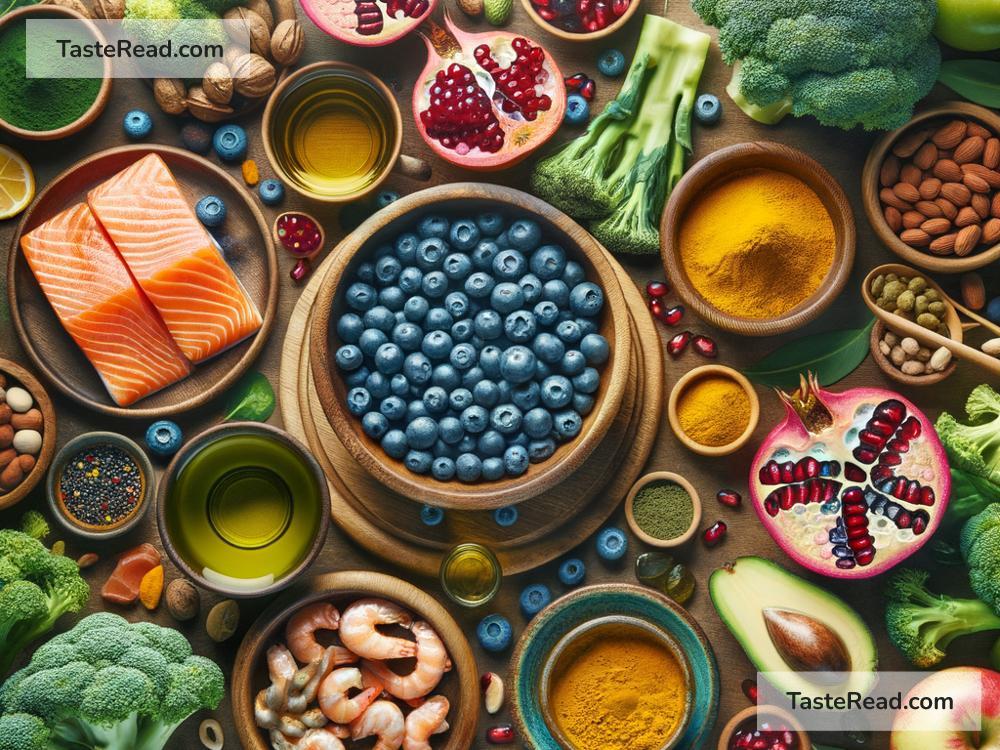Foods That Support Healthy Apoptosis: Protecting Your Body’s Cellular Health
Have you ever heard of apoptosis? It’s a fancy term for a very important process in your body—cell death. But don’t worry! Healthy apoptosis is essential for keeping us strong and preventing diseases like cancer. In simple terms, apoptosis is like your body’s cleaning system. It helps get rid of old, damaged, or unnecessary cells, making space for new, healthy ones. When apoptosis works correctly, it helps your immune system protect your body and keeps cells functioning properly.
Scientists have found that certain foods can support healthy apoptosis. Adding these foods to your meals can boost your body’s natural defense system and contribute to overall health. Let’s dive into some of the incredible foods that promote this process!
1. Cruciferous Vegetables
Cruciferous vegetables are a powerhouse for promoting healthy apoptosis! They include broccoli, cauliflower, Brussels sprouts, cabbage, and kale. These veggies contain compounds like sulforaphane and indole-3-carbinol, which can help your body remove damaged cells. Research shows that they may even help lower the risk of cancer by encouraging apoptosis in abnormal cells.
How to use them: Try steaming broccoli for dinner, tossing raw kale into your salad, or roasting Brussels sprouts. These vegetables are easy to cook and taste delicious with olive oil, garlic, or lemon juice.
2. Green Tea
Green tea isn’t just a refreshing drink—it’s also packed with antioxidants like epigallocatechin gallate (EGCG). Studies suggest that EGCG supports apoptosis by targeting unhealthy or damaged cells. Regularly drinking green tea may also reduce inflammation in your body, which helps keep your cells healthy.
How to use it: Swap your coffee for a cup of hot green tea in the morning or enjoy it iced on warm days. It’s easy to drink and offers many health benefits beyond apoptosis, including better brain function and better heart health.
3. Berries
Bright and colorful berries like blueberries, raspberries, and strawberries are loaded with antioxidants that protect your immune system and support healthy cellular function. They contain compounds like anthocyanins and flavonoids, which can promote apoptosis and reduce oxidative stress in damaged cells.
How to use them: Add berries to your breakfast smoothie, sprinkle them over oatmeal, or eat them as a snack. Bonus: Berries taste amazing and are sweet enough to satisfy your sugar cravings naturally.
4. Garlic
Garlic is more than just a flavor enhancer—it’s also a superfood that promotes apoptosis! Garlic contains allicin and other sulfur compounds that encourage damaged or unhealthy cells to break down. These compounds also have strong anti-inflammatory and antimicrobial properties, making garlic a valuable food for building your immune defenses.
How to use it: Chop or crush fresh garlic and add it to soups, stir-fries, or sauces. Try roasting garlic for a milder taste that’s perfect for spreading on bread or tossing with cooked veggies.
5. Turmeric
Turmeric, the golden spice often used in Indian cuisine, is famous for its active compound curcumin. Curcumin has been shown to encourage apoptosis in unhealthy cells, especially cancer cells. Turmeric also helps reduce inflammation and supports overall cellular health.
How to use it: Sprinkle turmeric in curries, soups, or roasted vegetables. For an extra boost, pair turmeric with black pepper to enhance your body’s ability to absorb curcumin.
6. Leafy Greens
Leafy greens like spinach, kale, and Swiss chard are rich in vitamins, minerals, and antioxidants that promote healthy cell processes. They contain carotenoids and folate, which help protect your cells from damage and encourage apoptosis in cells that need to be cleaned out.
How to use them: Use leafy greens as the base for salads, sauté them with olive oil and garlic, or add them to smoothies for a nutritional kick.
7. Nuts and Seeds
Nuts and seeds such as almonds, walnuts, flaxseeds, chia seeds, and sunflower seeds are great sources of healthy fats, vitamins, and polyphenols. These compounds protect cells and foster apoptosis in harmful or abnormal cells.
How to use them: Snack on a handful of nuts, sprinkle seeds over yogurt, or blend them into smoothies for a creamy texture and added nutrition.
8. Tomatoes
Tomatoes are rich in lycopene, a powerful antioxidant that promotes apoptosis and protects cells from oxidative damage. Lycopene is especially concentrated in cooked tomatoes, making this fruit (yes, tomatoes are technically a fruit!) a great addition to your meals.
How to use them: Add fresh tomato slices to sandwiches, toss them into salads, or cook them down into a flavorful pasta sauce.
9. Citrus Fruits
Citrus fruits like oranges, lemons, and grapefruits are loaded with vitamin C, a powerful antioxidant that supports cellular repair and apoptosis. Vitamin C also strengthens your immune system, helping your body fight infections.
How to use them: Squeeze lemon juice over cooked fish or salads, snack on an orange, or enjoy a glass of fresh grapefruit juice.
Final Thoughts: Support Your Body!
Apoptosis is a vital process that keeps your body healthy by removing damaged cells and harmful threats. While your body handles this process automatically, eating nutrient-rich foods can further support it. Incorporating cruciferous vegetables, green tea, berries, garlic, turmeric, leafy greens, nuts, tomatoes, and citrus fruits into your diet can keep your cellular cleaning system running smoothly.
Remember, every bite counts when it comes to your health. By choosing these foods, you’re not just enjoying delicious meals—you’re also helping your body stay strong and resilient. Cheers to healthy eating and healthy cells!


